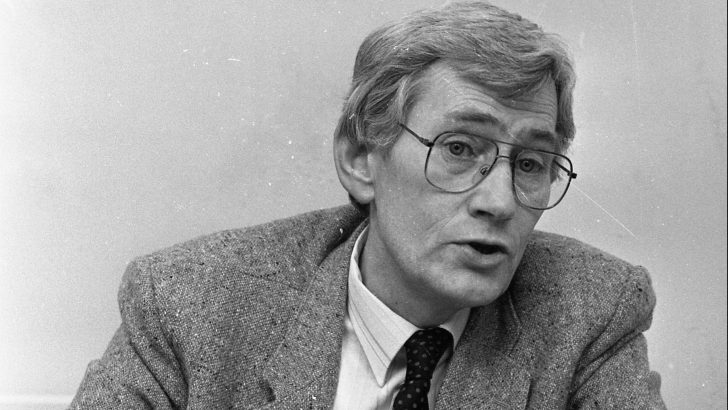In the Hebrew bible, when Abner is slain, King David says to his men: “Do you not realise that a great man has fallen in Israel this day?”
I thought about it when news started to emerge on Friday afternoon that Seamus Mallon had died at the age of 83. Mr Mallon was indeed a great man who sacrificed so much for justice and peace.
He was also a man of great integrity and he wore his quiet Catholic Faith lightly. I last met him in Co. Wexford in September when we were both guest speakers at the Kennedy Summer School. I must admit to feeling more than a little apprehensive to be sharing a stage with a man who was such a towering figure of humanity in my childhood.
As the North descended into chaos, along with people like John Hume and Cardinal Tomás Ó Fiaich, Mr Mallon was the calm voice walking the via media between articulating nationalist grievances and aspirations whilst rejecting violence as a way to bring an end to injustice.
Delay
The 1979 words of St John Paul II that “further violence in Ireland will only delay the day of justice” sat comfortably with Seamus Mallon.
Eventually reasonable voices were able to persuade those wedded to violence that peaceful means was the only way forward. In doing so, Mr Mallon and others showed a remarkable spirit of self-sacrifice in allowing Sinn Féin to steal their clothes of constitutional nationalism. And having paid a heavy price all during what we euphemistically call ‘the Troubles’, they paid a heavy price electorally in the post Good Friday Agreement dispensation where they quickly realised that eaten bread is soon forgotten.
He had helped move the conversation from talk of a united Ireland to talk of an agreed Ireland”
I never got the impression that Mr Mallon was bitter. But there was an evident righteous anger in him. Amidst the jubilation at power-sharing between the DUP and Sinn Féin he was sad about the missed opportunities. He was pleased about the compromise – but knew also that the failure of these two parties to agree decades earlier had meant many more people lost their lives.
Mr Mallon never lost his steely determination that peace was possible – and if peace was possible, he knew that it was necessary to move heaven and earth to make it happen.
Depth
The depth of his strength lay in the fact that he was rooted in his profound Catholic Faith. He knew – and articulated so well – that not only was violence not only counter-productive, but that it was wrong.
Towards the end of his life Mr Mallon reflected very deeply on the sort of Ireland we are building. He had helped move the conversation from talk of a united Ireland to talk of an agreed Ireland.
His book A Shared Home Place raised many uncomfortable questions for people of all political hues. He set before us – as he sets before us now – the task of articulating what a new Ireland would look like. What – if anything – would make it different from every other free market economy in the world? What, in short, would make it somewhere rather than anywhere?
It is a conversation that must be faced with courage. And it is a conversation that cannot be ignored.
But for Seamus, his life’s work done, he can see God face to face and know that he left this earth – and this island – a better place than he found.
“Blessed are the peacemakers, for they will be called children of God.”


 Michael Kelly
Michael Kelly the late Seamus Mallon
Photo: Independent News and media/Getty Images/The New York Times
the late Seamus Mallon
Photo: Independent News and media/Getty Images/The New York Times 